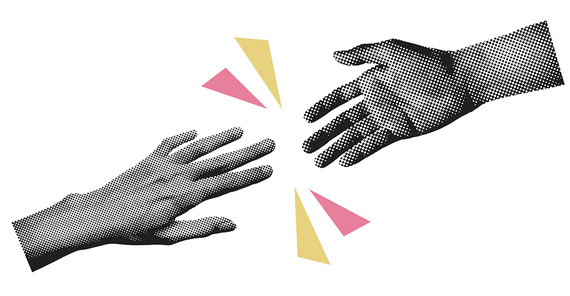1.
In a country that leads global democracy rankings, we too often take free elections, freedom of expression, equality before the law, and citizens’ political participation for granted. But a look around the world shows that anti-democratic forces are on the rise. Today, there are fewer democratic societies than autocracies, and liberal democracies are considered an endangered species. Almost three-quarters of all people live in more or less authoritarian societies, and the number of autocratic countries continues to increase.
2.
Time and again, there are relapses into authoritarian conditions, often triggered by political elites who violate established ethical and normative principles. The many transgressions by US President Donald Trump are a vivid example of this. When political elites signal that such norm-violating behavior is acceptable, the public tends to adopt anti-democratic beliefs and behaviors of their own. “Research shows, for example, that certain parts of the population become significantly more xenophobic when they know that Donald Trump won the majority of votes in their constituency,” Abel says.
3.
A combination of populism, misinformation, and polarization is fueling radicalization against fundamental democratic principles. “However, we know from risk research that there is a gap between description and experience. I tend to underestimate risks that have only been described to me, while I tend to overestimate risks that I have experienced myself.” To save democracy, it is therefore not enough to simply warn of its impending demise. Preventing democratic norms of behavior from becoming rusty requires training.
4.
An effective instrument to halt the decline of democracies is behavioral intervention. Its aim is to increase resilience to manipulation and misinformation, strengthen individual decision-making skills, and reduce prejudices against social groups.
5.
Another well-documented behavioral intervention brings people from different social strata and groups together to discuss specific topics. “This can also be done in an enjoyable way, as a beer commercial for Heineken has shown,” Abels says. “To do this, people with opposing views were brought together in a room, given a beer, and encouraged to start a conversation.”
6.
A pedagogical method used by the Max Planck Institute for Human Development is boosting: “This involves short interventions that teach people specific skills,” Abels explains. “For example, how to check the credibility of sources. Or so-called pre-bunking, i.e., recognizing false information based on certain linguistic or narrative markers.”
7.
Bringing people together in a relaxed environment: this can be done through club activities, volunteer work, or company events. “In my opinion, the most effective measure is to do this in the workplace,” says political scientist Abels. “Because many other occasions where people still come together physically are gradually disappearing. Who still sings in the community choir or goes to church and talks to other people there?”
8.
These interventions are based on the theory of intergroup contact from the 1950s. It posits that prejudices against other groups do not stand up to real contact with them. “And studies on such interventions show exactly that,” Abels says. “Bringing people together at a table and creating friendly narratives also helps counteract polarizing convictions that ultimately harm democratic coexistence.”
9.
Making the concept of democracy tangible through interactive formats: This can also be done playfully. These include role-playing games or virtual simulations (e.g., of a surveillance state) in which you can experience what it means to live in an autocratic system. Last but not least, the visual arts can play an important role in expressing the contrasting realities of life in democratic and politically unfree societies.
10.
The sciences also have a duty to perform when it comes to promoting society’s trust in democratically organized research and education. After all, those who enjoy academic freedom also have a responsibility to open their ivory towers. This requires accessible formats through which the general public can learn about the work conducted at universities and academic institutes, which is co-financed by the public sector or made possible by it in the first place.
This text was published in the university magazinePortal - Zwei 2025 „Demokratie“. (in German)
Here You can find all articles in English at a glance: https://www.uni-potsdam.de/en/explore-the-up/up-to-date/university-magazine/portal-two-2025-democracy



